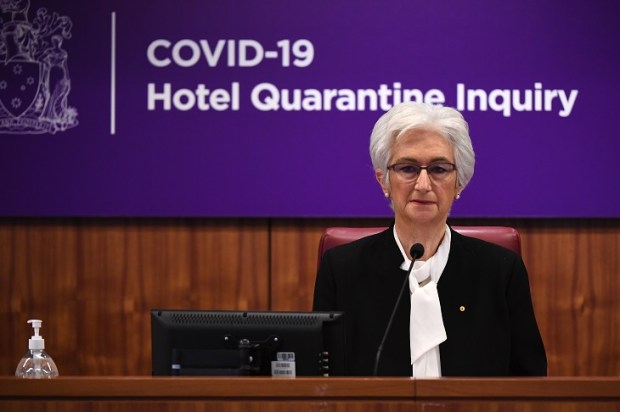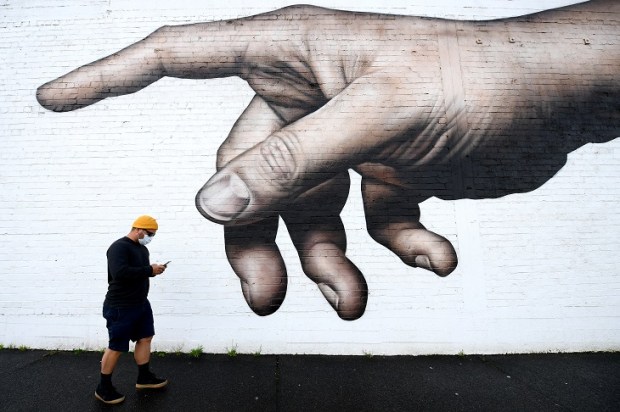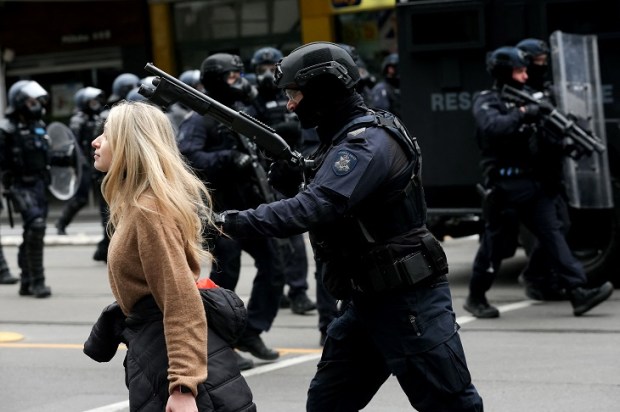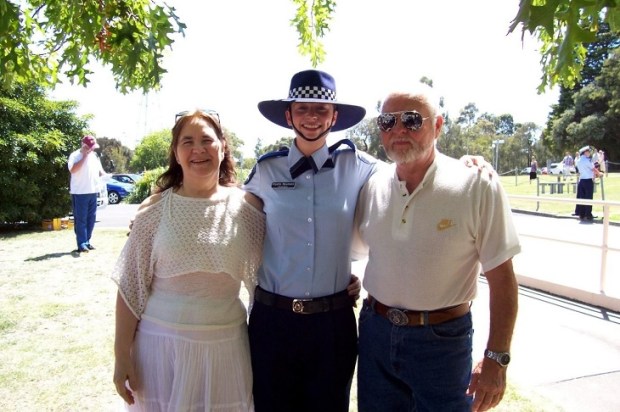In an era of rapid cultural shifts, Os Guinness – a renowned author and social critic – delivers a clarion call to the West: rediscover your roots, recognise the restraints that sustain civilisation, and embrace renewal through faith. Speaking at the ARC forum, Guinness reflects on the deep ideological battlelines that have surfaced since the October 7 attacks on Israel. He warns of the existential crisis facing Western Civilisation and argues that without a return to its Judeo-Christian foundations, it risks decline, chaos, and ultimate collapse.
A Convergence of Forces Against the West
Only days after the attack on Israel, Guinness found himself in US Speaker Mike Johnson’s office, witnessing one of the first large-scale pro-Palestinian protests in Washington, DC. What struck him was the organisation behind it – this was not a spontaneous movement but a coordinated effort. Since then, he observes an ‘incredible convergence’ of radical ideologies, each historically opposed to the Judeo-Christian West, now coalescing into a formidable force.
From the alliance between the Grand Mufti of Jerusalem and Hitler during the second world war to the 1967 Marxist call for a ‘long march through the institutions’, we see a disturbing union of radical Islamism, cultural Marxism, and militant secularism. Each of these movements – whether religious extremism, Marxist revolution, or postmodern deconstruction – shares one goal: the dismantling of Western Civilisation, its faith, and its moral foundations.
Yet, why does the very mention of religion or faith cause discomfort in much of the modern world?
The Role of Faith in civilisation
Every civilisation, Guinness argues, is built upon a foundation that answers the fundamental questions of human existence: Where do we come from? What is our purpose? What is the meaning of life? Throughout history, these answers have always been shaped by religion. Yet, in the modern West, there is a reluctance – even hostility – toward acknowledging the Judeo-Christian roots that shaped its values, laws, and moral compass.
Western Civilisation, Guinness reminds us, is not merely a product of human progress or enlightened reason. It was born from a Judeo-Christian worldview – its culture, faith, and morality deeply embedded in biblical teachings. However, in recent centuries, an alternative vision has emerged, seeking to replace God with human reason alone.
The Failure of Secular Liberalism
Since the Enlightenment, many intellectuals believed that human reason could supplant faith as the foundation of society. The goal was to build a civilisation based purely on logic, science, and individual autonomy. But has it worked?
Guinness contends that it has not. He points to the failure of secular liberalism, which, ironically, began with a rejection of religion and ended by creating its own dogmatic belief systems. Marxism, for instance, claimed to be purely materialist and rational but evolved into an ideology that tolerates no dissent – functioning much like the oppressive religious structures it sought to overthrow.
In the wake of October 7, Guinness argues, we are witnessing the unravelling of liberalism. It has become post-liberal and, paradoxically, highly illiberal. Freedoms that once defined Western society – free speech, religious liberty, and personal autonomy – are now being eroded by authoritarian ideologies masquerading as progress. The promised secular Utopia has failed to materialise, and in its place, we see division, confusion, and cultural decay.
The Resurgence of Christian Faith
Yet, even as secular ideologies falter, there is a renewed interest in faith. Across the world, Christianity is experiencing a resurgence, offering answers where secularism has failed.
Guinness highlights three essential human needs:
Meaning: A framework that explains our purpose.
Belonging: A community that nurtures us.
Purpose: A mission that directs our lives.
No system, he argues, provides deeper or more fulfilling answers to these fundamental needs than Christianity. Rooted in the moral and spiritual heritage of Judaism, the Christian faith has historically provided the bedrock of Western Civilisation, offering a vision of human dignity, justice, and freedom.
The Three Pillars of Civilisation: Roots, Restraints, and Renewal
To understand the path forward, Guinness urges us to revisit the key pillars of civilisation:
1. Roots: The Source of Human Dignity
The concept of human dignity – the idea that every person has inherent worth – is not a self-evident truth. It originates from Genesis 1:27:
‘So God created mankind in his own image, in the image of God he created them; male and female he created them.’
For most of history, societies did not believe in universal equality. Aristotle famously claimed that some people were born to rule while others were born to be ruled. The idea that all people are equal before God was a revolutionary Judeo-Christian contribution, shaping the values of democracy, human rights, and justice.
2. Restraints: The Guardrails of Civilisation
Without moral and ethical restraints, even the most enlightened societies collapse.
Ancient Greece gave the world democracy and freedom, yet without moral constraints, it descended into the tyranny of the majority, imperial ambition, and ultimately, ruin. The Renaissance celebrated human potential but, unchecked by moral discipline, led to excess and decadence.
History proves that civilisation cannot sustain itself on human reason alone. When moral restraints are abandoned, societies drift into chaos or authoritarianism.
3. Renewal: Exile and Return, Not Decline and Fall
Guinness offers a biblical perspective on civilisational decline. While historians often speak of the ‘rise and fall’ of great nations, Scripture presents a different pattern: exile and return. When a nation turns from God, it experiences disorder, displacement, and eventually exile. But if it repents and returns to God, renewal is possible.
This perspective is crucial because it offers hope. Civilisation is not doomed to inevitable collapse – it can be restored if people return to the values and faith that once made it strong.
The Looming Showdown: What Will Prevail?
Christopher Dawson, a historian of civilisation, observed that different cultures react to decline in different ways. Autocratic nations, like Russia, tend toward totalitarianism. Liberal democracies, like Australia and England, lean toward ‘soft totalitarianism’ through creeping regulations and state control.
The great battle of our time is not just against external threats from China, Russia, Iran, or North Korea. It is against the internal forces seeking to erode freedom and self-governance. The real danger is whether enough citizens possess the faith and moral clarity to stand against this tide.
The Call to Action: A Creative Minority
As one of the oldest voices at the ARC forum, Guinness closes with a call to action. He challenges individuals to become part of what he calls the ‘creative minority’ – those who refuse to passively accept civilisational decline but instead work to rebuild and renew it.
The question he leaves us with is this:
Will Western Civilisation continue down the path of secularism, trusting reason alone to sustain it? Or will it rediscover the faith that made it flourish?
Christianity will only shape the future if it is understood to be both true and necessary. It is not enough to treat it as a cultural relic or a useful moral system. civilisation depends on whether enough people have ultimate loyalty to ultimate reality – whether they truly believe and live out their faith.
The stakes have never been higher. This is the showdown moment for the West. Will we rise to the challenge?
Krystle Mitchell, Speak for Liberty
Follow me on X at @Just_Krystle_M

























